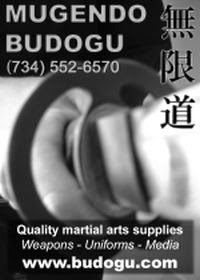You see and hear a lot of different titles in Japnaese martial arts. Unfortunately, a lot of people have little or no idea how these titles and honorifics are actually used. I’ve seen people addressed as “Smith Sensei,” “Bob Sensei,” “Sensei Smith,” and “Sensei Bob.” I’ve also seen people insist on being address as “Hanshi,” “Shihan,” “Soke,” “Shidoshi” and “Shidoin.” In Japanese budo culture, only one of these is correct.
Being introduced as Sensei is fine. Introducing yourself with a title sounds either ignorant of Japanese usage or extremely arrogant, as if you are giving yourself some sort of title. If you are introducing yourself, it's just "Peter desu" or "Lowry desu" Anything more is arrogant or foolish. Even the very senior shihan of my acquaintance just introduce themselves with their names. Their business cards will have their ranks and certificates, but that's all, no honorifics. Those are are something other people use to talk about you, not something you use for yourself. Certificate titles like “shihan” or “shidoin” aren’t forms of address either.
“Sensei” isn’t a title. It’s an honorific like “Mr.” or “Mrs.” In English it would be a little strange to introduce yourself by saying “I’m Mr. Boylan”. It’s even stranger in Japanese where the honorific a person uses to address you depends on your age, position relative to the person addressing you, the particular situation and your relationship with them. I have been addressed as everything from “kun” (a diminutive used to show that I’m a lot lower status than the speaker), to “san” (the general honorific used for people of relatively equal status), to “sama” (shows great respect and implies high social status).
Sensei is mildly honorific. It means teacher, and everyone who teaches gets called sensei, regardless of whether you are teaching biology or swimming or kenjutsu or skateboarding. The 80 year-old nobel prize winning physics professor and the 16 year old skateboard teacher are both sensei. As is, I should add, any doctor and any politician. Do you really think being lumped in the same category as politicians is all that wonderful?
Many people are fond of trying to find deep meaning in the characters used to write Japanese words. I don't get too excited over how words are written in kanji. The writing was decided a thousand years ago or more, and the actual day-to-day usage has shifted since then. Much more important is how the word is actually used in Japan now than how someone decided to write it a millennium or more ago.
if you teach English in Japan "Eigo no sensei" isn't too bad a way to describe yourself. It's a job description. However, "Eigo no kyoshi" would be more in keeping with standard Japanese usage. “Sensei” is a title used to address people. “Kyoshi” is a title used to describe a position, like “plumber” or “teacher” in English. Hanshi, shihan, shidoshi and shidoin are also titles to describe a position or certification. These are not terms ever used to address someone directly. Using them in conversation would be like walking around a university campus and addressing the instructors by their official university titles. “Hello Professor Smith.” “Good afternoon Assistant Professor Nakamura.” “Good evening Adjunct Instructor Rosen.” It’s sounds quite strange.
Another note, you don't generally say something like "I am x's sensei." You'd say "X is my student" It's one of those cultural nuances.
I can't think of anyone who puts "sensei" on their business cards, and without trying to sound pompous, I've got quite a few business cards from 8th dans, various hanshi and shihan (If you hang out in budo circles in Japan for any length of time you'll accumulate a few. It's just a normal part of the social interactions. It doesn't suggest that you actually know anyone or have any significance yourself). If you have an organizationally awarded title such as kyoshi, hanshi or shihan, you would put that title on your business card. It's like putting Ph.D. on your card. It's a title that an organization has awarded you. You aren't claiming that anyone should use it in addressing you. Usually it's added along with a listing of dan rank, such as "Nanadan, Kyoshi" or "Hachidan, Hanshi". That sort of thing. I've never seen "sensei" on a card though.
This how these honorifics and titles are used in conversation. “Sensei” is an honorific like Mr. or Mrs., but since it’s Japanese and we’re doing Japanese arts, it has to go AFTER the person’s name. Please show a little awareness on this and don’t tell me “This is America.” I know it’s America, but we’re practicing Japanese arts, so get the usage right for the art you’re praticing. If you’re doing boxing or wrestling, whatever is standard in those activities is appropriate for those activities. If you’re doing fencing or savate, you use the forms appropriate for them.
Using honorifics and titles incorrectly is a red flag. If someone is claiming rank or claiming to teach Japanese budo and they aren’t getting simple things like proper use of honorifics and titles right, this is a big warning sign. It doesn’t take much to learn how these things should be used. If someone is using them incorrectly, it suggests to me that they really don’t have any experience in Japanese budo.
So please, show that you know as much about the etiquette of the arts as you do about the techniques, and use the titles and honorific forms of address properly.

